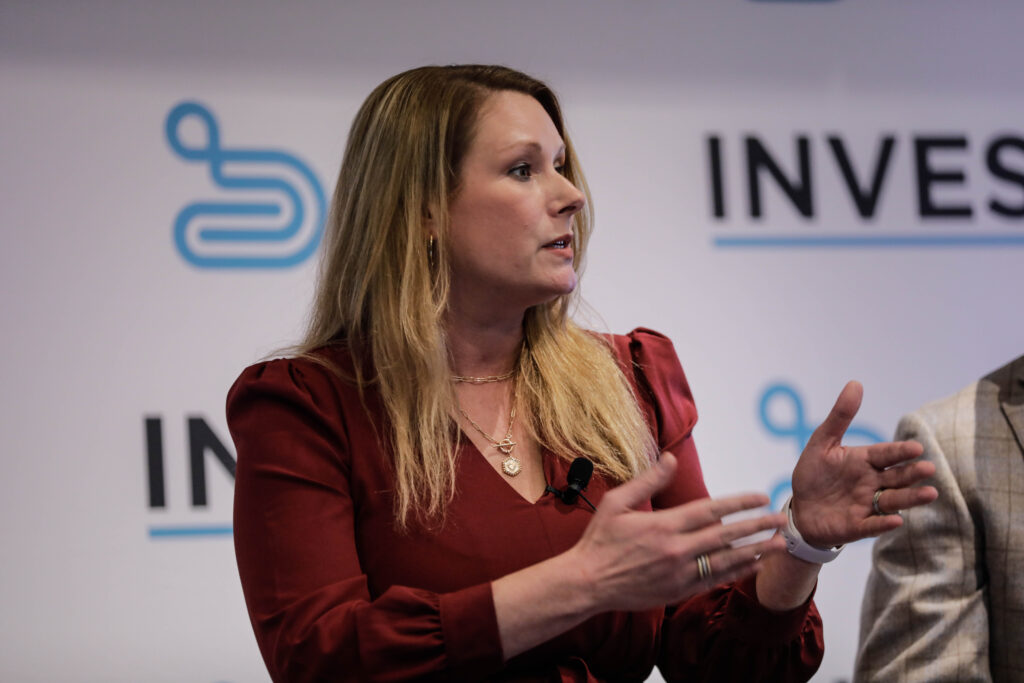Industry insiders projected that 2023 would be a year of reckoning for autism treatment providers.
The reckoning is here.
Major platform companies have made significant stumbles, and workforce challenges still plague the industry. All the while, payers continue to hold out on raising reimbursement rates for most autism therapies. Instead, payers eye value-based care arrangements.
The Center for Autism and Related Disorders (CARD) and Invo Healthcare, two of the largest providers in the space, have been cautionary tales. Other companies present cases where growth is still possible while operating at scale, chasing what makes the autism therapy field a tantalizing segment to invest, operate and work in.
Demand for autism services has never been higher. The estimated rate of neurodivergence has steadily increased for more than 20 years, according to CDC data. The expectations for — and access to — evidence-based interventions are also higher. Striving to meet this massive demand makes the autism therapy space one of the most compelling business segments in behavioral health.
Fundamental systemic changes helped make the autism therapy industry accessible from a clinical and investment perspective. After decades of advocacy, all 50 states established state mandates requiring the coverage of autism therapies by 2019.
Research shows that those state mandates are associated with at least a 16% increase in access to board-certified behavior analysts (BCBAs). These mandates could also help autism providers evolve and face some of their most pressing challenges.
Read on for a list of the mental health companies that Behavioral Health Business will be watching most closely this year.
CARD court sale may set the market for autism therapy investment
Once the leader in the private equity-backed autism therapy movement, CARD will likely sell for pennies on the dollar in a bankruptcy proceeding. Its founder, Doreen Granphesheh, has a partnership with Sangam Pant, an ex-Evercore Partners exec and managing partner in CARD, seeking to buy the company for $25 million.
Granpeesheh and Pant’s offer is a starting bid. Others may put up an offer by the general bid deadline of July 13.
Still, such a stumble and then remarkably low sale of Henderson, Nevada-based CARD will make it easier for buyers to push down sale multiples in other autism therapy deals. Already, multiples have compressed, according to data from The Braff Group.
Should no other bids arise, CARD will see the return of its founder and founding CEO. About half the time, the CEO leaves the role after three years after an acquisition. A study published in the MIT Sloan Management Review found that “boomerang CEOs,” those who return to the role after leaving, were founders 44% of the time. But they only made up 4% of the CEO population studied.
As BHB has previously covered, different CEOs often have different skills that match to a certain level of development in a company’s life cycle.
“From a headcount perspective, there are people that are really good at zero to 50,” Tim Gordon, founder and managing partner of executive search and consulting firm Aequitas Partners, previously told BHB. “Over 150 is a whole new skill set for a lot of folks. So the odds that someone who’s really good from zero to 50 is also really good at 300 is pretty slim, but not impossible.”
Granpeesheh stepped out of the CEO role in 2019. Her successor, Tony Kilgore, was replaced by the present CEO, Jennifer Webster, in early 2022.
CARD stumbled partly under the burden of the heavy debt load it picked up as part of its acquisition by Blackstone. The Blackstone deal may be a cautionary tale of private equity buyout/leverage-up investment play in the autism therapy space.
Court documents show CARD took on $235 million in debt on Nov. 21, 2018.
BHB will be closely watching CARD to see if it can make a comeback under Granpeesheh’s leadership and demonstrate a path forward after a stumble or if it will be a cautionary tale for future companies.
Invo Healthcare accents trouble of aggregating practices
Invo Healthcare shuttered all of its in-office and in-home applied behavior analysis (ABA) subsidiaries. Public notices presently available show that at least 1,000 employees are impacted. The last day for most Invo centers is Sept. 19.
The company’s leaders have publicly and privately pointed to the same challenges that CARD experienced as the impetus for severing those lines of business. These include stagnant payer rates, inflation and workforce challenges.
However, a heavy debt load may also be at play. From 2017 to 2019, the company accumulated $234.4 million in debt, according to data from Pitchbook. The Federal Reserve’s effective rate, a proxy for most variable-rate business debt, has more than doubled since the end of 2018.
Coincidentally, New York-based Ares Capital Corp. is a lender to Invo Healthcare and CARD.
Invo Healthcare says it will double down on its school-based business, which includes ABA and other behavioral health services. BHB is watching Invo because its next moves will demonstrate if the move to an exclusive business-to-business model will bring profitability and stability to the sector.
After a handful of investment rounds, the company acquired and integrated several entities based all over the U.S. It’s shutting down Autism Home Support Services, ABA2Day Behavior Services and Xcite Steps — all of which it acquired over the last several years — and the home- and center-based services of Progressus Therapy, which will continue to offer school-based care.
The next company on our list may give some indication that Invo Healthcare will find what they are looking for.
The Stepping Stones Group’s growth highlights the potential of school-based autism therapy partnerships
The Stepping Stones Group is one of the largest autism therapy providers in the U.S. But it is also one of the fastest growing.
Its largely school-based model has a footprint in 32 states, according to its website. Boston-based Stepping Stones Group also operates in-home ABA services in 22 areas in California and Massachusetts and 12 centers in six states.
The company came in at No. 2,366 on the latest Inc. 5000 list, with revenue growth of 248% from 2018 to 2021.
Doug Moes, chief clinical development officer of The Stepping Stones Group, said in December 2022 that 2023 would be a “year of reckoning” and that partnerships for greater value-based care adoption and integrated model would come to the fore.
It’s unclear how important the in-home or in-office spaces are to the company today. About six months ago, The Stepping Stones Group acquired the in-school speech therapy company Catalyst Speech Language Pathology. Catalyst provides services to more than 20 school districts in California.
BHB is watching The Stepping Stones Group because it offers insights into the potential of business-to-business models in the autism therapy space. How it handles its center-based and in-home business lines will also be telling for the space.
NeurAbilities Healthcare flipped payer dynamics with data
Voorhees, New Jersey-based NeurAbilities Healthcare is one of the few autism therapy providers consolidating several medical specialties into a one-stop-shop offering for autism and other neurodivergent patients.
Some of its services include ABA, neurology, developmental pediatrics and family therapy. NeurAbilities Healthcare operates 17 locations in Pennsylvania and New Jersey, according to its website.
This model simplifies the medical lives of children with autism and their parents. It also allows the company to get paid for more services while maintaining a whole-person perspective of a patient’s health.

It has also invested heavily in tracking care provided and care outcomes, NeurAbilities Healthcare CEO Kathleen Stengel has previously told BHB.
The data-informed approach and talking about value has shifted her relationship with payers. Now, payers feel like “my partners,” Stengel added.
This has led to some innovation beyond vanilla fee-for-service rates. The company has secured enhanced rates from some payers based on NeurAbilities Healthcare’s performance on three things — speed to care, rate utilization and satisfaction scores.
There is one other company with some semblance of what NeurAbilities Healthcare does: San Diego, California-based Cortica.
In April, Cortica announced that it secured $75 million in funding and acquired Trumbull, Connecticut-based Springtide Child Development and Scottsdale, Arizona-based Melmed Center. Cortica garnered attention from investors and payers because of its focus on value-based care and providing multiple specialties for autism and neurodivergent patients.
BHB is watching NeurAbilities because they could offer a fairly unique care model that is at the forefront of several leading industry and payer trends. This could also spark investor interest in a time of turmoil and transition in the industry.
Action Behavior Centers leans into regional density
In August, Boston-based middle-market private equity firm Charlesbank Capital Partners reached a deal with Action Behavior Centers’ previous owner NexPhase Capital LP to acquire the Austin, Texas-based ABA therapy provider.
The company is one of the largest ABA providers in the nation and one of the most densely concentrated. Action Behavior Centers lists 161 locations in just five states on its website. The states are Arizona, Colorado, Illinois, North Carolina and Texas.
Nearly all (118, or 73%) of its locations are in Texas.
Its latest expansion was into North Carolina. It announced the move in August 2022.
The company is also among the fastest-growing in the U.S. The Inc. 5000 list puts Action Behavior Centers at No. 499 with revenue growth of 1,249%. It was founded in 2017.
Most other private equity companies are much more diffuse. CARD, for example, operates 130 locations in 14 states, with California (55 locations, or 42%) being its largest market. Another example: Houston, Texas-based BlueSprig operates 137 locations in 15 states, with Florida accounting for about 30% of its locations at 41.
Many industry insiders dismiss national scale as a de facto advantage. Rather, the better approach is market density, where the environment is favorable in some way. From a payer perspective, most health plans are state and regionally based. This is true for state Medicaid plans, a key party since most autism therapy is provided to children. From an operational perspective, it simplifies the administration of a growing business while helping capture more of the local workforce.
Part of CARD’s plan to turn its business around pre-bankruptcy was to shut down markets where it didn’t have a significant presence.
BHB is watching Action Behavior Centers because it has taken a unique approach to its growth, seeking to dominate leading markets. It also only has one location in North Carolina. Should the overall market headwinds let up more, Action Behavior Centers could pick up rapid expansion again in one of the fastest-growing states in the nation.
Who else are we watching in the autism therapy space?
This list is far from complete. There are so many compelling autism therapy providers that are doing amazing things and demonstrating too many key aspects of the industry and its underlying forces.
Indianapolis-based Hopebridge Inc., another autism therapy provider that takes a market density approach, is under the leadership of a new CEO. It recently announced a traveling BCBA staff role to differentiate itself for current and potential employees.
Additionally, Gracent, an autism therapy platform established in 2022 by the private equity firm Altamont Capital Partners, operates under two different brands — North Shore Pediatric Therapy, which has nine locations in Illinois, and Pinecone Therapies, which has four locations in Texas. It’s interesting because BHB hasn’t seen nearly as many new platform companies. Should Gracent learn from the last few years, it could be armed with the know-how to expand services even in the face of headwinds.
Altamont’s previous portfolio company, Sequel Youth & Family Services, acquired Pinecone Therapies in 2020 and North Shore in 2021. Philadelphia-based FS KKR Capital Corp. (NYSE: FSK) also provided Gracent with about $49 million in financing and holds a stake in the company, according to public filings.
Companies featured in this article:
Action Behavior Centers, Ares Capital Corp., Center for Autism and Related Disorders, Cortica, Gracent, Hopebridge, Invo HealthCare, NeurAbilities Healthcare, Stepping Stones Group



